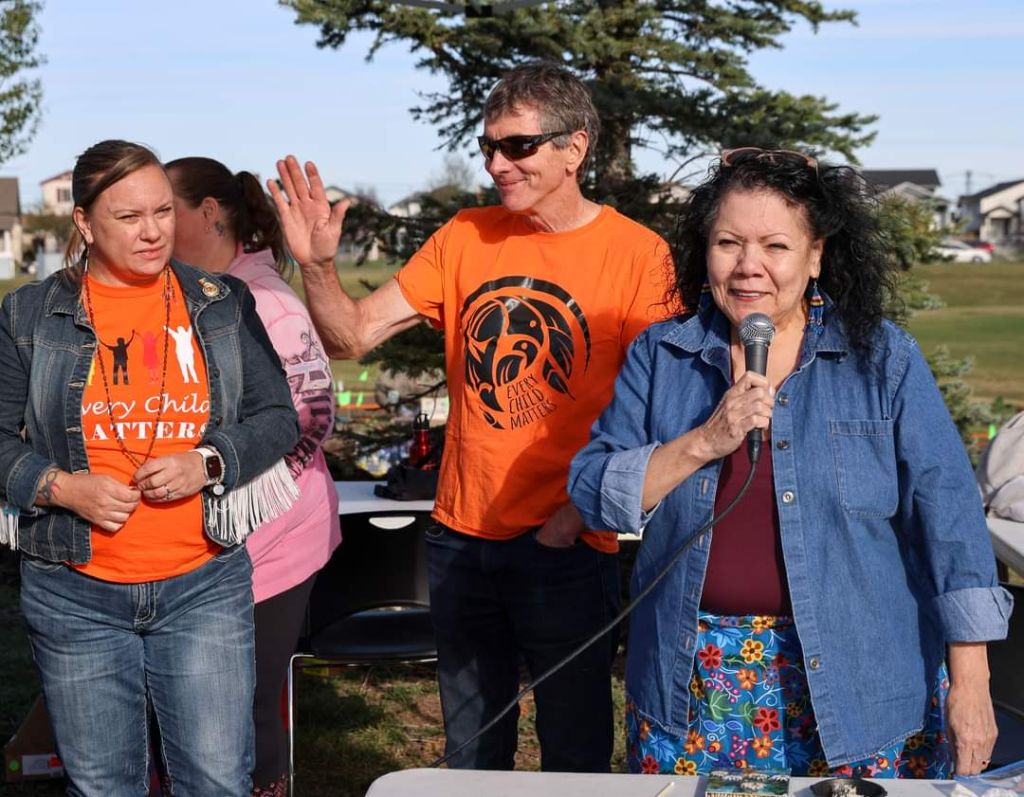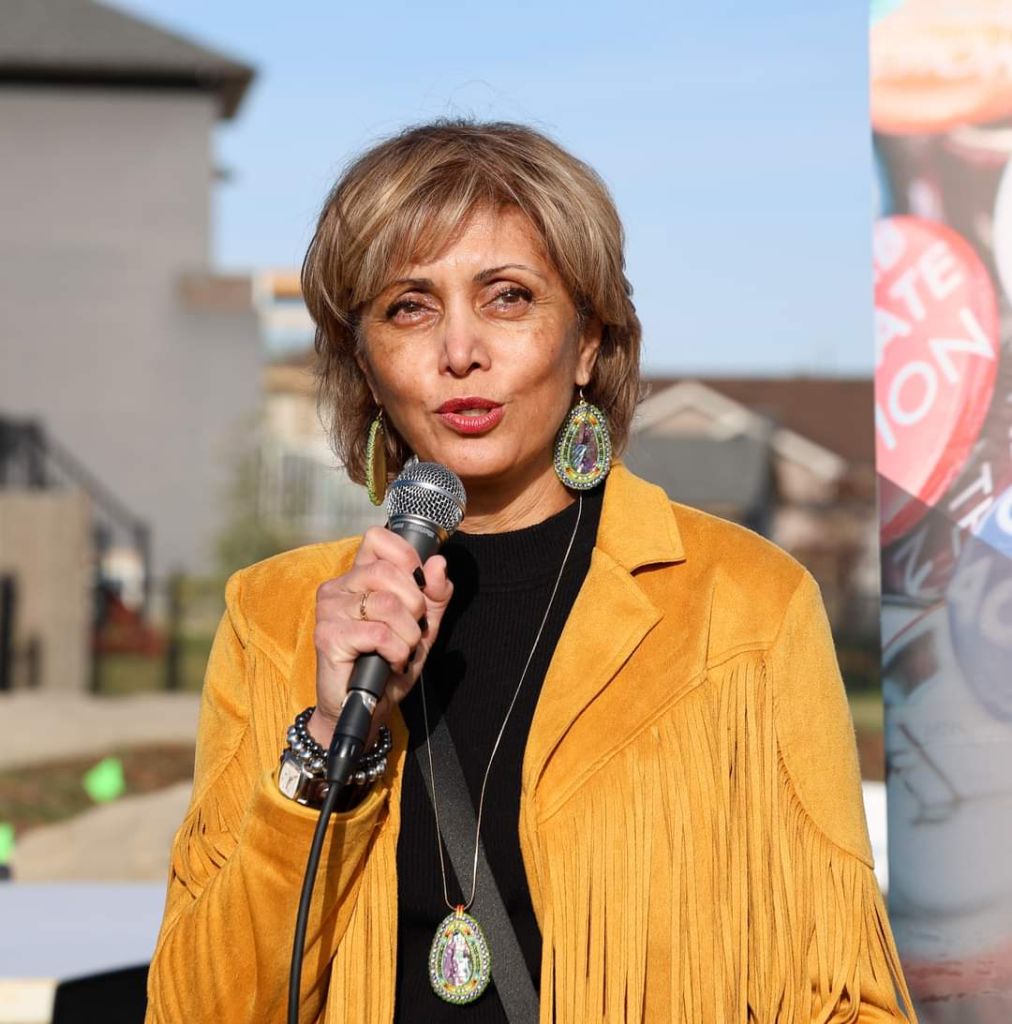- Home
- Featured Articles
- Tiny Forest through the Miyawaki Method
by Genesis Centre
Published October 3, 2024
Tiny Forest through the Miyawaki Method
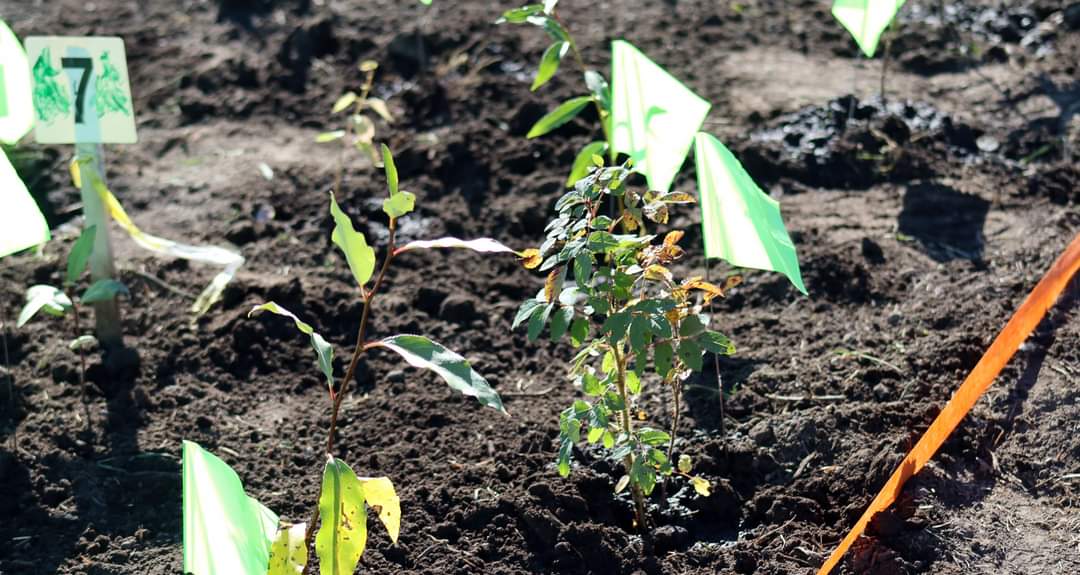
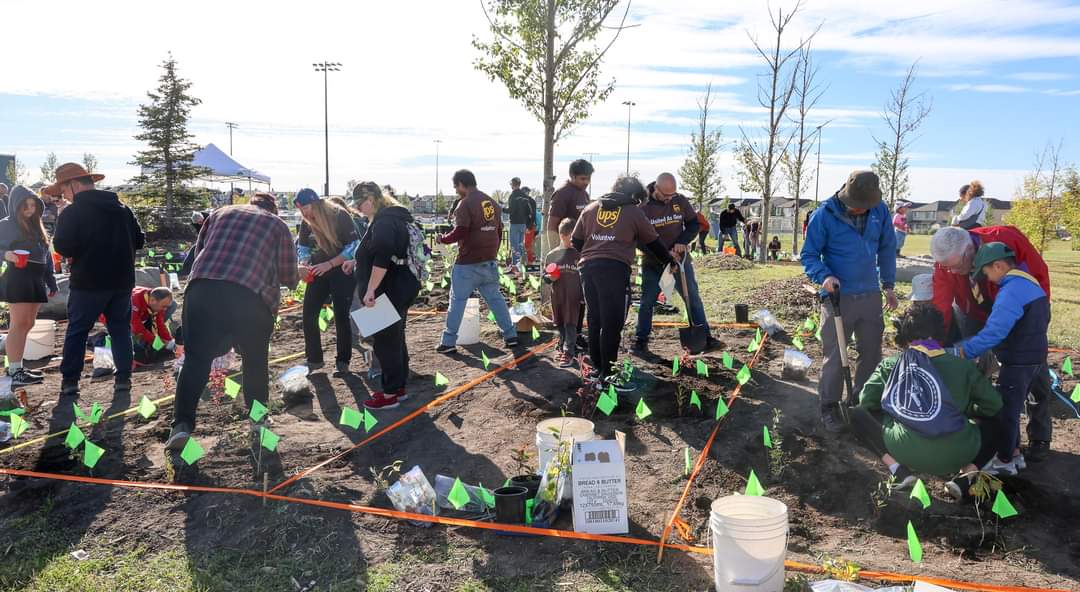
In late 2022, we were honored to be approached by Rob Miller
from the Calgary Climate Hub with a wonderful opportunity: the possibility of
planting a tiny forest at the Genesis Centre. This project has been made
possible through funding from Alberta Ecotrust Foundation’s Climate Innovation
Grant Program. The forest is being created using the Miyawaki method, a unique
approach to reforestation that focuses on small, dense ecosystems composed of
native plants. This type of forest grows quickly and requires minimal human
intervention, offering a beautiful, natural space for families to enjoy.
We are incredibly fortunate to have Heather Morigeau, a
passionate and talented Two-Spirited Indigenous permaculture designer, leading
the design of this project. Heather has envisioned our tiny forest in the shape
of a fox head, thoughtfully incorporating the existing sandstone rocks and
trees in the space. Her design honors both the land and its natural elements.
In this project, we’ve planted an impressive array of 215
trees, 262 large shrubs, 282 small shrubs, and 289 herb and wildflower plants.
These include species such as trembling aspen, green ash, bur oak, river birch,
chokecherry, wolf willow, Saskatoon berries, raspberries, strawberries, wild
rose, snowberry, gooseberry, showy aster, and giant hyssop—each contributing to
the diverse and thriving ecosystem we aim to create.
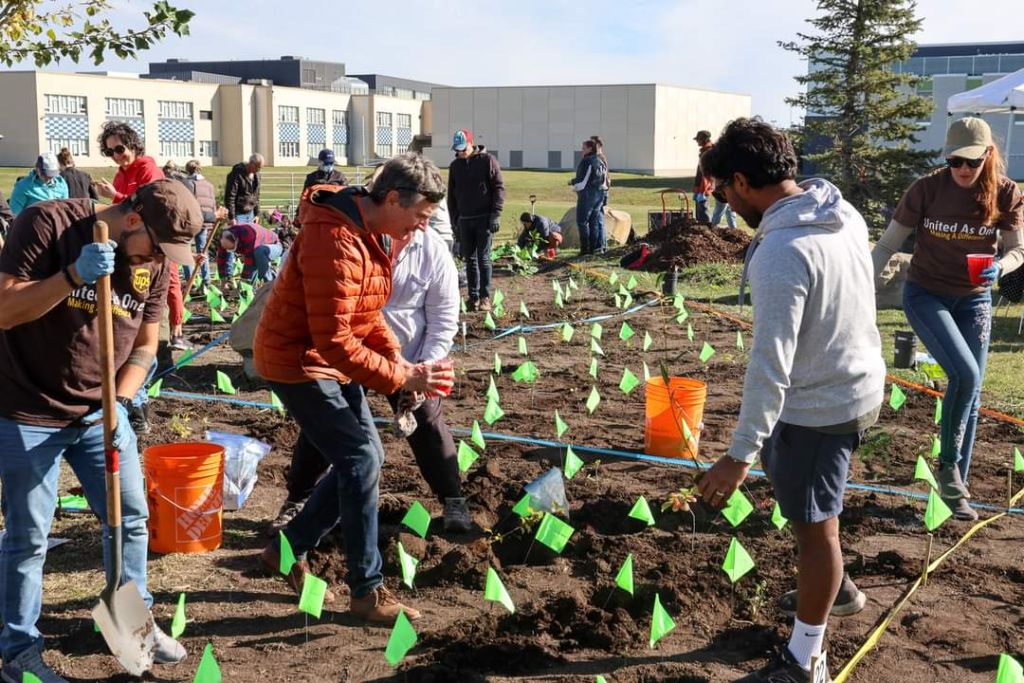
On Saturday, September 28th, 2024, Rob, Heather, Elder
Marilyn Shingoose, and dozens of dedicated volunteers spent the day bringing
this vision to life. Elder Shingoose began the day with a blessing and smudge,
setting a tone of reverence and gratitude for the land. After some safety
instructions and planting guidelines, we spread out to begin the work. Each
plant was carefully marked with a small flag, ensuring the space can be tended
to and maintained as the forest grows. We were also honored to have Mayor
Gondek join us to express her appreciation and thank the volunteers for their
efforts.
Tiny forests like this bring both environmental and social
benefits to our communities. They reduce air pollution, increase biodiversity,
and provide critical habitat for wildlife, all while adding much-needed
greenery to urban areas. These spaces offer more than just ecological
advantages—they also foster mental and physical well-being. Time spent in
nature has been shown to reduce stress, improve mood, and promote physical
activity. Additionally, green spaces like this one serve as vital gathering places,
strengthening social bonds, encouraging community interaction, and reducing
isolation.
This Miyawaki forest also holds deep cultural significance.
By incorporating native species that are important to local First Nations, we
honor traditional ecological knowledge and deepen our connection to the land.
These forests create a sense of place and pride, reinforcing our shared
cultural identity tied to Alberta’s natural heritage.
In areas where access to nature may be limited, especially
in underserved or low-income neighborhoods, tiny forests like ours address
environmental inequality by offering green spaces that promote equity and
inclusion. Our little forest will quickly grow into a lush, vibrant oasis—a
place where the community can come together to learn, grow, and thrive
alongside the flourishing ecosystem.

